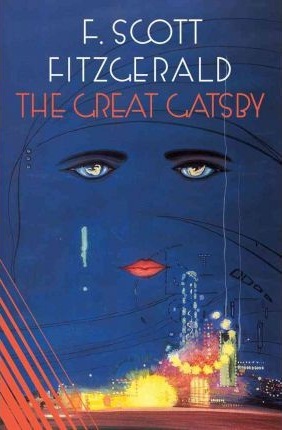
Series: N/A
Source: Gifted
Publisher: Scribner
Publication Date: September 30, 1999
In 1922, F. Scott Fitzgerald announced his decision to write "something new--something extraordinary and beautiful and simple and intricately patterned." That extraordinary, beautiful, intricately patterned, and above all, simple novel became The Great Gatsby, arguably Fitzgerald's finest work and certainly the book for which he is best known. A portrait of the Jazz Age in all of its decadence and excess, Gatsby captured the spirit of the author's generation and earned itself a permanent place in American mythology. Self-made, self-invented millionaire Jay Gatsby embodies some of Fitzgerald's--and his country's--most abiding obsessions: money, ambition, greed, and the promise of new beginnings. "Gatsby believed in the green light, the orgiastic future that year by year recedes before us. It eluded us then, but that's no matter--tomorrow we will run faster, stretch out our arms farther.... And one fine morning--" Gatsby's rise to glory and eventual fall from grace becomes a kind of cautionary tale about the American Dream.
It's also a love story, of sorts, the narrative of Gatsby's quixotic passion for Daisy Buchanan. The pair meet five years before the novel begins, when Daisy is a legendary young Louisville beauty and Gatsby an impoverished officer. They fall in love, but while Gatsby serves overseas, Daisy marries the brutal, bullying, but extremely rich Tom Buchanan. After the war, Gatsby devotes himself blindly to the pursuit of wealth by whatever means--and to the pursuit of Daisy, which amounts to the same thing. "Her voice is full of money," Gatsby says admiringly, in one of the novel's more famous descriptions. His millions made, Gatsby buys a mansion across Long Island Sound from Daisy's patrician East Egg address, throws lavish parties, and waits for her to appear. When she does, events unfold with all the tragic inevitability of a Greek drama, with detached, cynical neighbor Nick Carraway acting as chorus throughout. Spare, elegantly plotted, and written in crystalline prose, The Great Gatsby is as perfectly satisfying as the best kind of poem.


Don't get me wrong, it's a beautiful sort of confusing - full of words and poetry... but still confusing. I can't get past that - several times in the book, I even wondered who Nick was talking about. To be honest, for about the first half of the book, I couldn't figure out who was narrating. It just never stood out to me, and I never really did connect with Nick as a character.
I'm going to come right out and say that I didn't read the synopsis of this at all - I read it solely on recommendation, so I didn't know that Gatsby and Daisy had a history. And let me tell you, that was one of the most romantic shocks ever. I loved that, and I wanted to see more on that front.
I loved the backstory on Gatsby - it was quite the crazy amount of coincidences, and I'm not sure how much of it was true - or how much of it was a lie. I'd like to think that all of it was true, but the personality of Gatsby doesn't necessarily allow for that. In the end, I'm not sure where this book really even took me. I liked it, of course - but I was easily confused by the language of that time, and don't even get me started on the movie. Once I read the book, the movie kind of just died.
All in all, The Great Gatsby is a good read, but it's slightly confusing and actually pretty sad. Gatsby built everything that he was, and in the end it didn't even matter.










 = I didn't like it.
= I didn't like it. = It was okay.
= It was okay. = I liked it.
= I liked it. = I really liked it.
= I really liked it. = LOVE!
= LOVE!

No comments:
Post a Comment